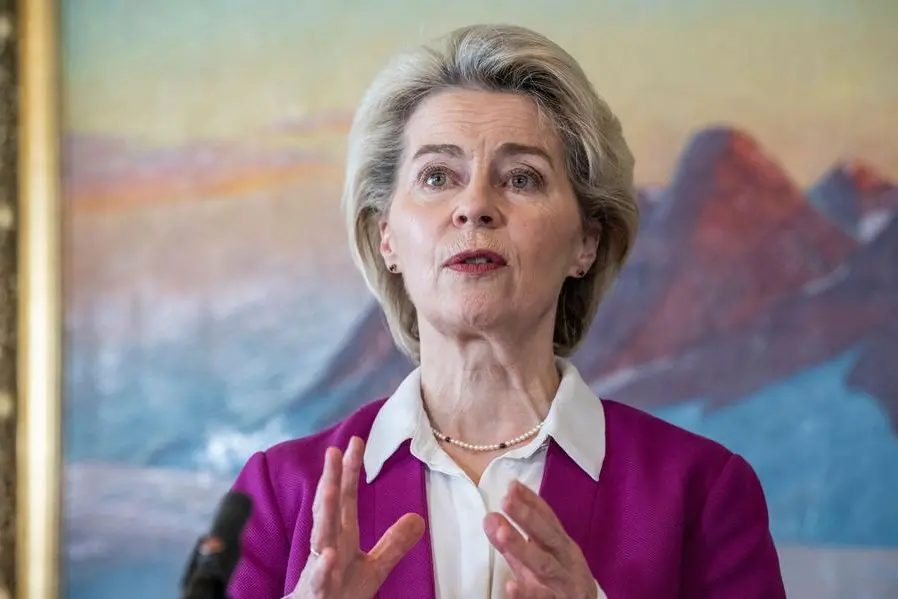PHOTO
European Commission chief Ursula von der Leyen on Friday laid out a further series of concessions to EU farmers, especially for those on smaller properties, in a bid to calm rolling protests in the sector.
The measures aim "to further ease the administrative burden" and loosen compliance with some environmental rules farmers encounter when getting money from the bloc's subsidy programme, von der Leyen told Polish Prime Minister Donald Tusk in a phone conversation, a commission statement said.
The changes affecting the EU subsidy programme, known as the Common Agricultural Policy (CAP), were officially proposed on Friday evening.
Farmers in Poland, which has a particularly big agricultural base, have been protesting farm imports from war-torn Ukraine, which they say undercut prices for their own produce.
Demonstrations by farmers have also taken place in recent weeks in other countries, including Belgium, France, Spain and Italy over a litany of burdens they say are depressing revenue.
Von der Leyen told Tusk the proposed changes would "apply certain standards in a way that is more compatible with the everyday realities that farmers face on the ground".
For instance, one would exempt farms under 10 hectares (25 acres) from checks and penalties tied to CAP conditions.
Another would free farmers of the obligation to keep part of their land fallow, though they would still be incentivised to do so -- a measure von der Leyen's commission already announced last month.
"The commission's proposals are a direct response to the requests received from farmers' organisations in and beyond Poland," the statement said.
It added that the EU was also looking at extending sanctions on Russia to include restrictions on Russian farm imports.
The proposed changes to the CAP still need to be negotiated between EU member states and the European Parliament.
The concessions are being made just three months before EU-wide elections for the European Parliament that surveys predict will result in a surge of support for far-right parties that are using farmers' discontent as part of their campaigning.
Environmental NGOs however have denounced the plans.
Anu Suono of WWF said that "blindly abandoning environmental measures will not appease farmers who are suffering from unfair prices and the climate emergency".





















